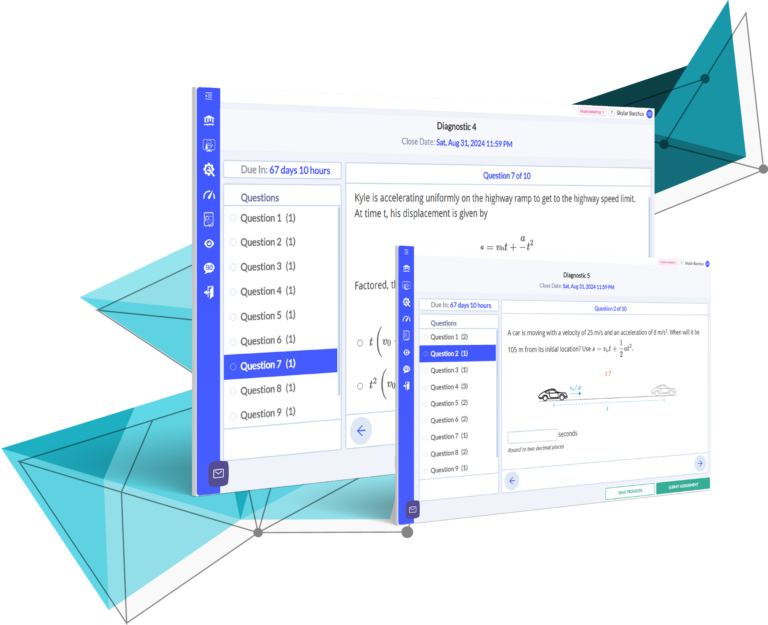
Students undergo a carefully developed diagnostic assessment designed to identify their strengths and areas requiring improvement in key mathematical topics.
Students enhance their mathematical skills through personalized, interactive modules that offer immediate feedback and continuous support throughout the learning and assessment process.


Mastery-based assessments enable students to demonstrate proficiency in their mathematical skills to move forward confidently with their studies.

The ALSM contains 400 psychometrically analyzed assessment items rigorously validated through field trials involving approximately 10,000 students.
The items are constructed-response (written) to provide a more reliable estimate of students' ability to accept a range of responses and selected-response (multiple-choice) types. They are available in both English and French.

The upgrading modules are online, digital resources that use interactive methods to help students understand and master core mathematical concepts. They break concepts into micro-steps and use various feedback mechanisms to help build confidence by providing a personalized learning environment for student success.

Diagnostic assessments ensure that each evaluation is unique for every applicant, maintaining consistent difficulty, representativeness of the content and performance expectations. These assessments are designed to provide reliable estimates of an applicant’s abilities while being concise enough to complete within a reasonable length of time.

The Assessment Framework comprises two key dimensions which form the basis for test item validity analysis: (1) Content Topics: Whole numbers, Arithmetic, Integers, Decimals, Fractions, Ratio and Proportion, Percents, Basic Algebra and Measurement; (2) Performance Expectations: Corresponding to the broader goals of mathematics teaching and learning: (A) Knowing, (B) Applying and (C) Reasoning.